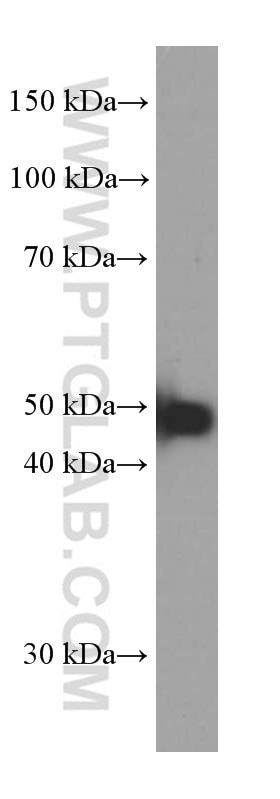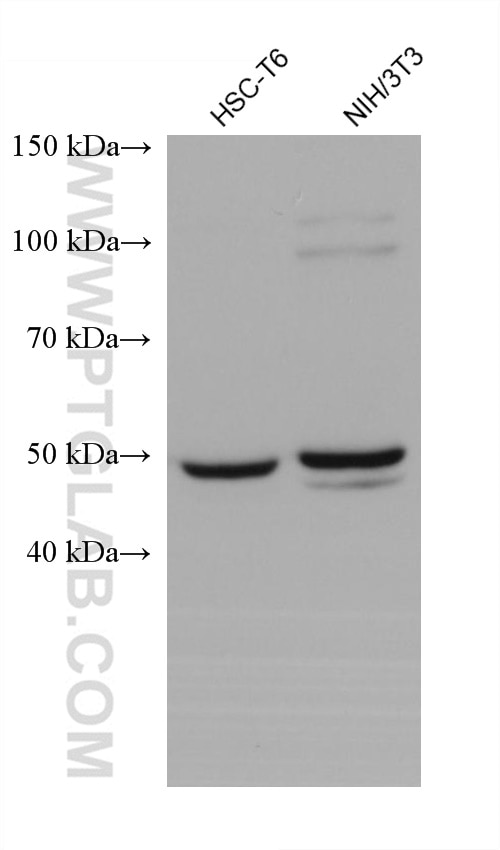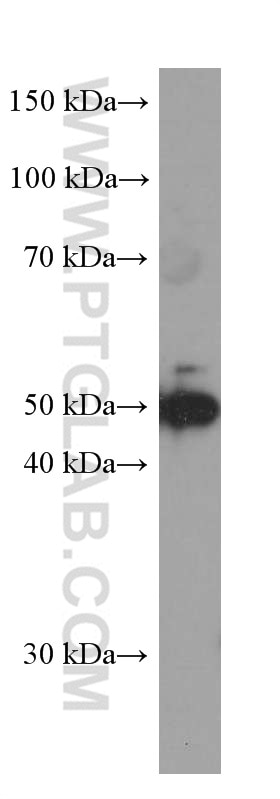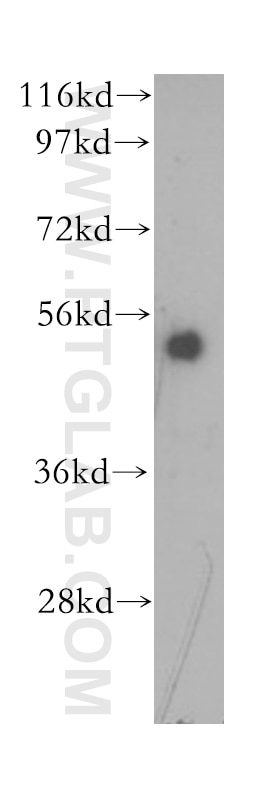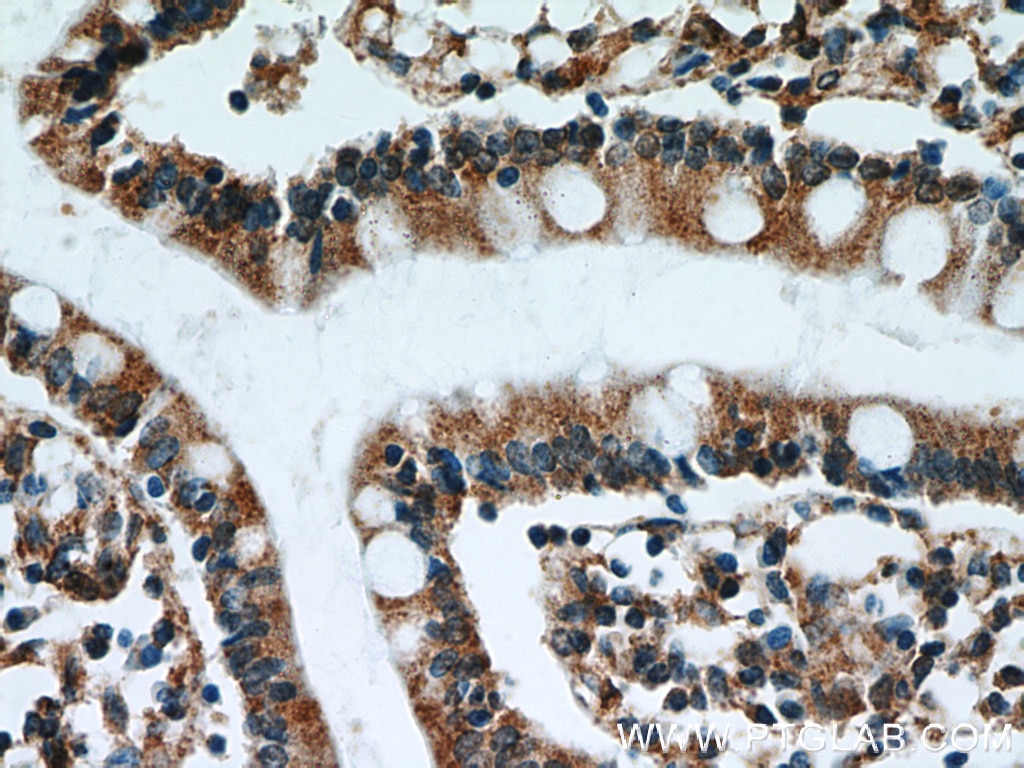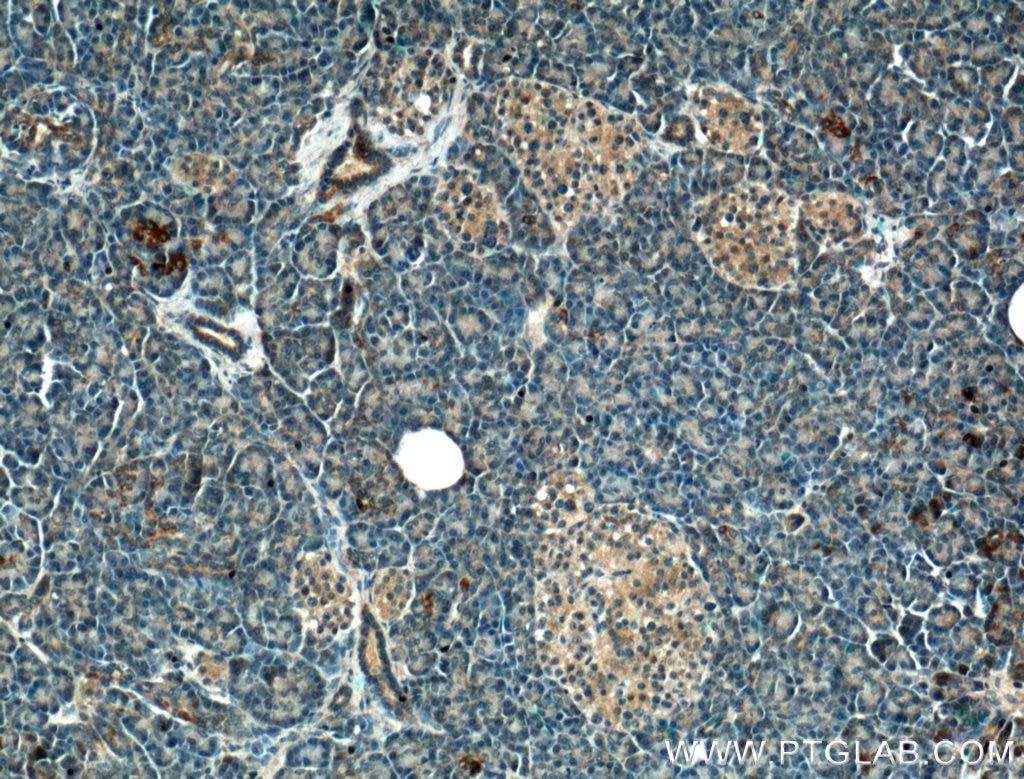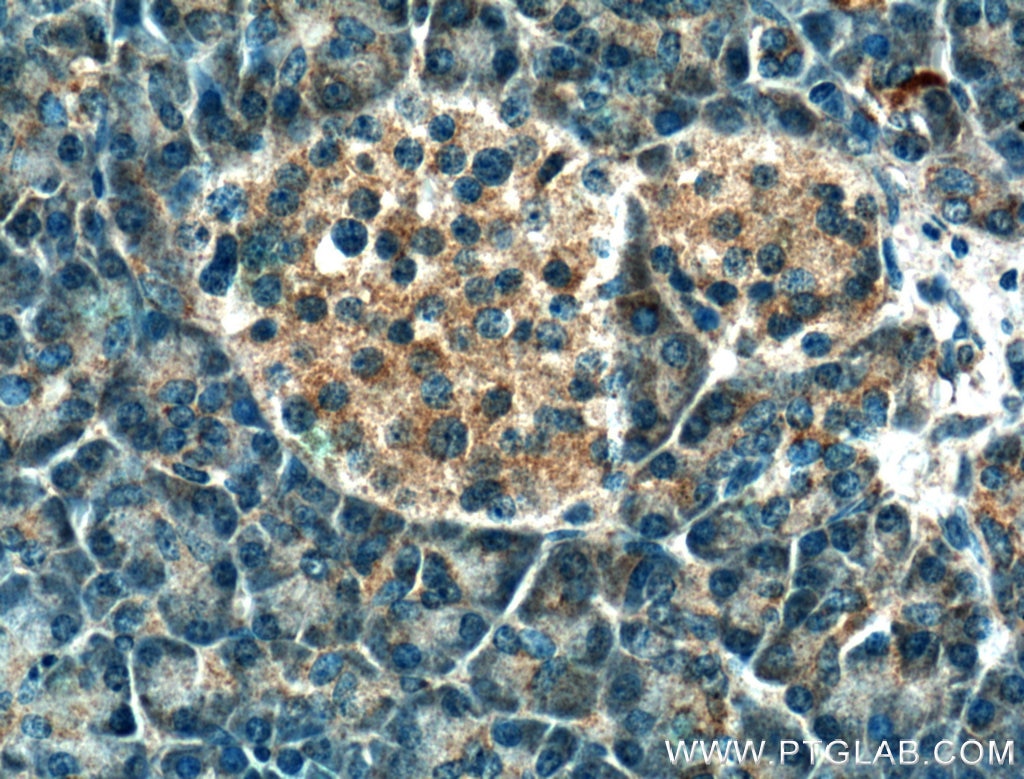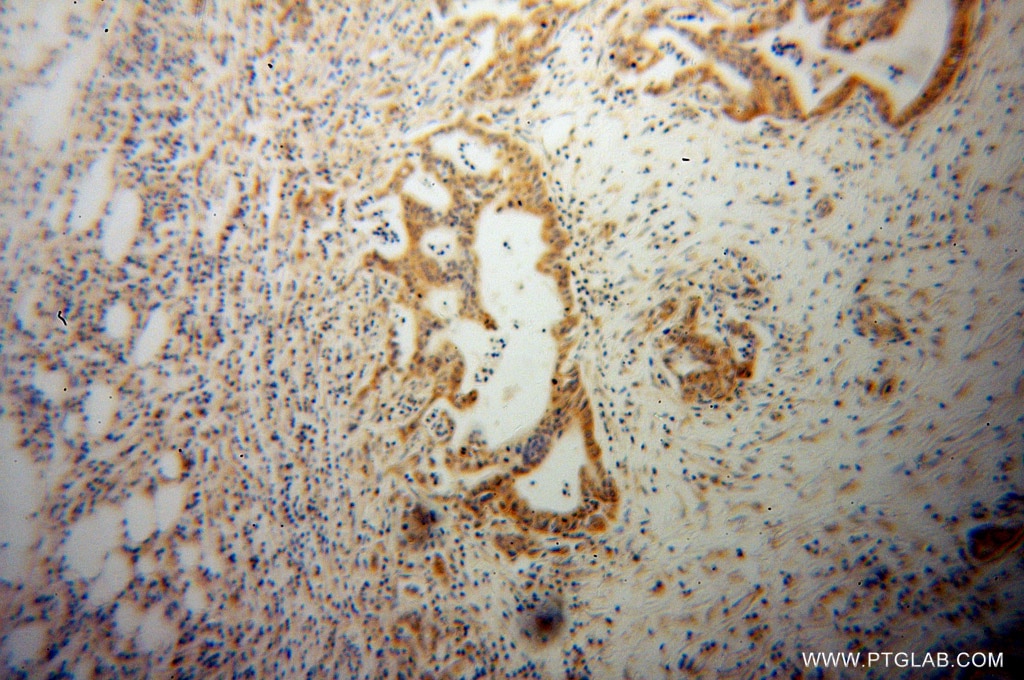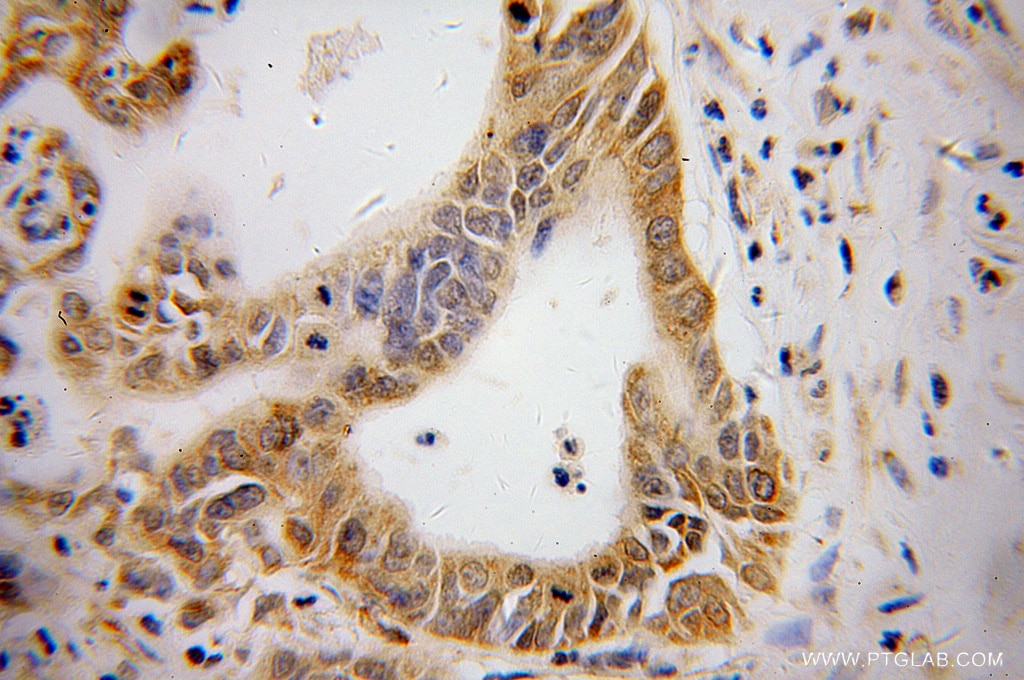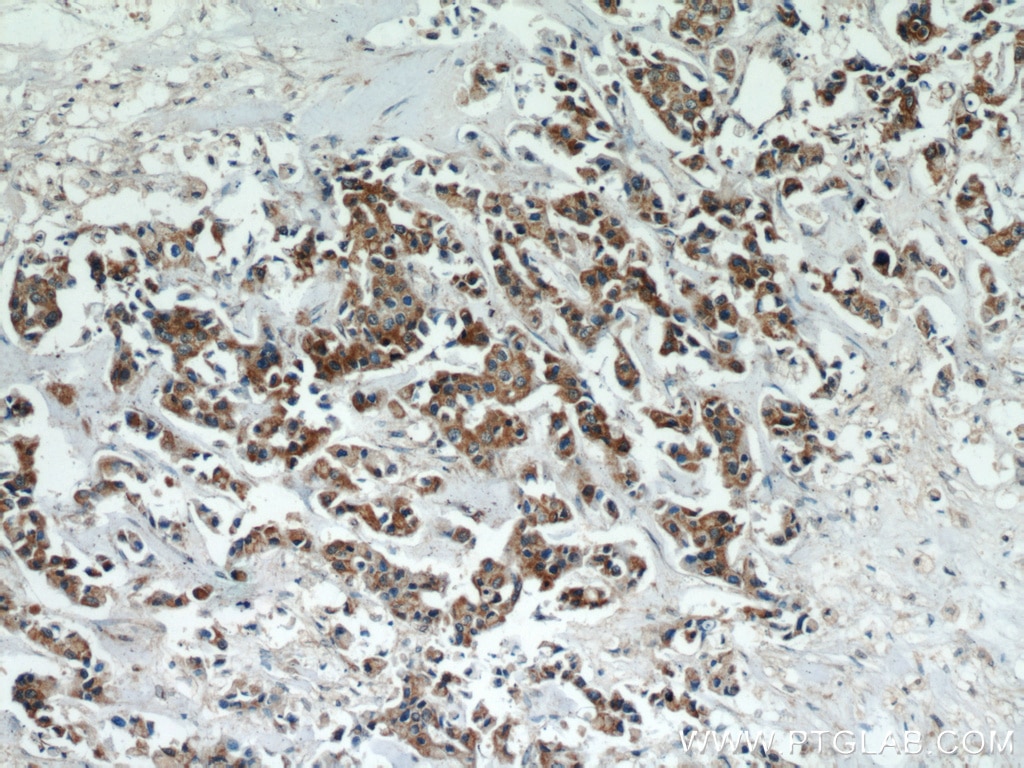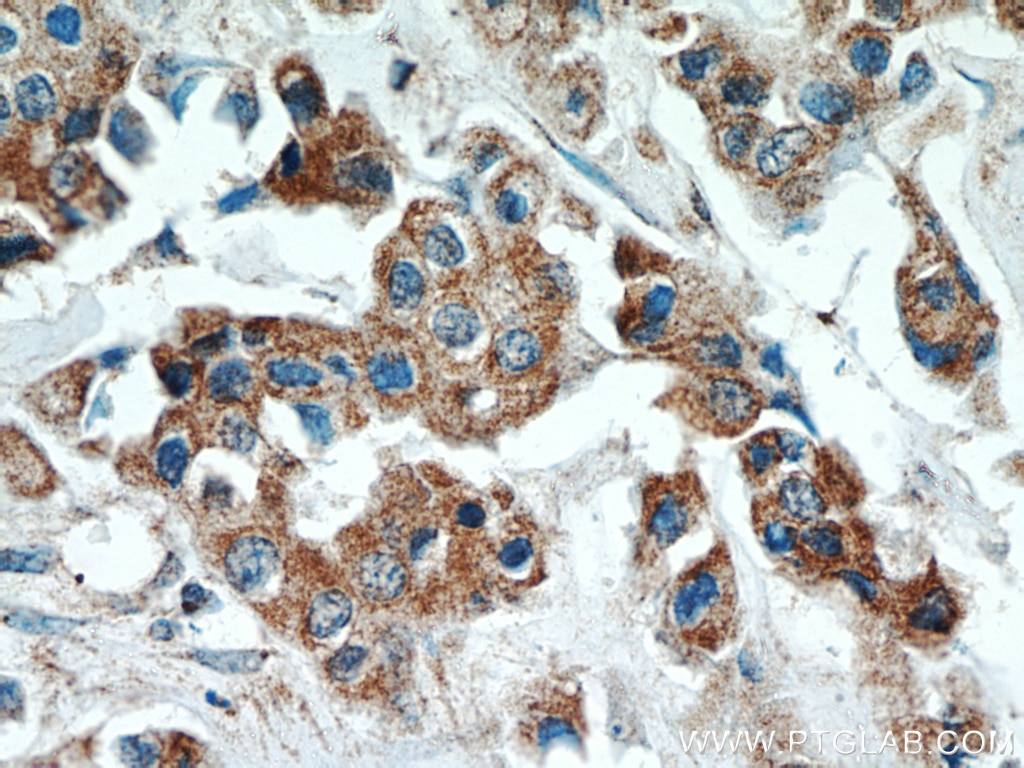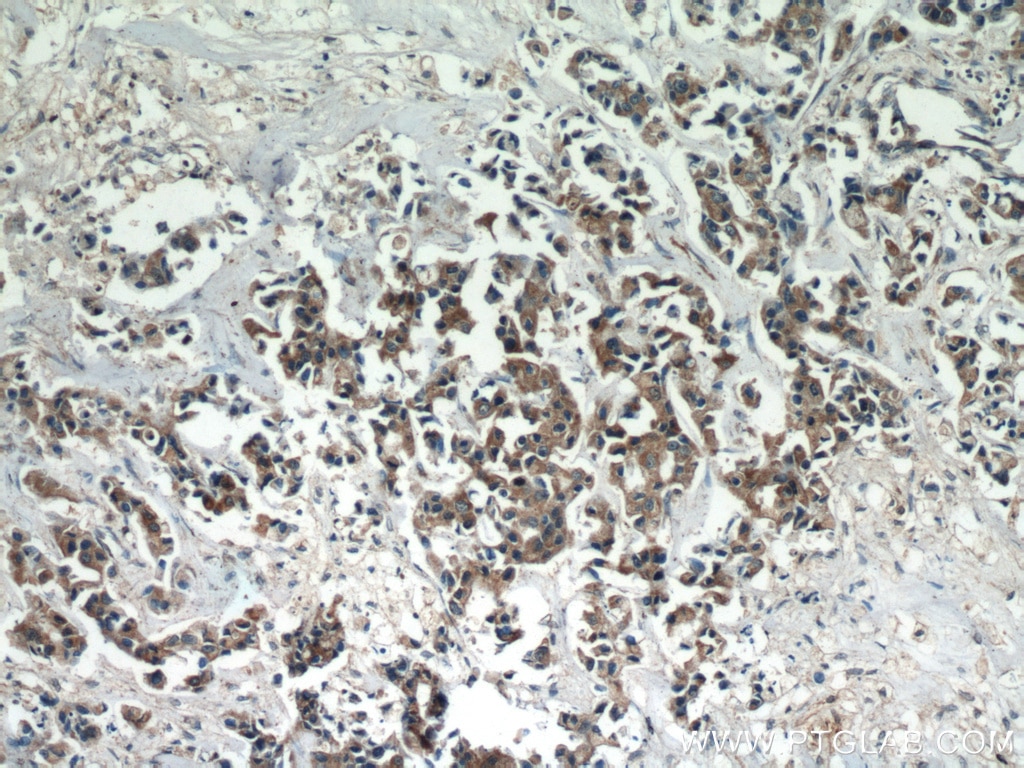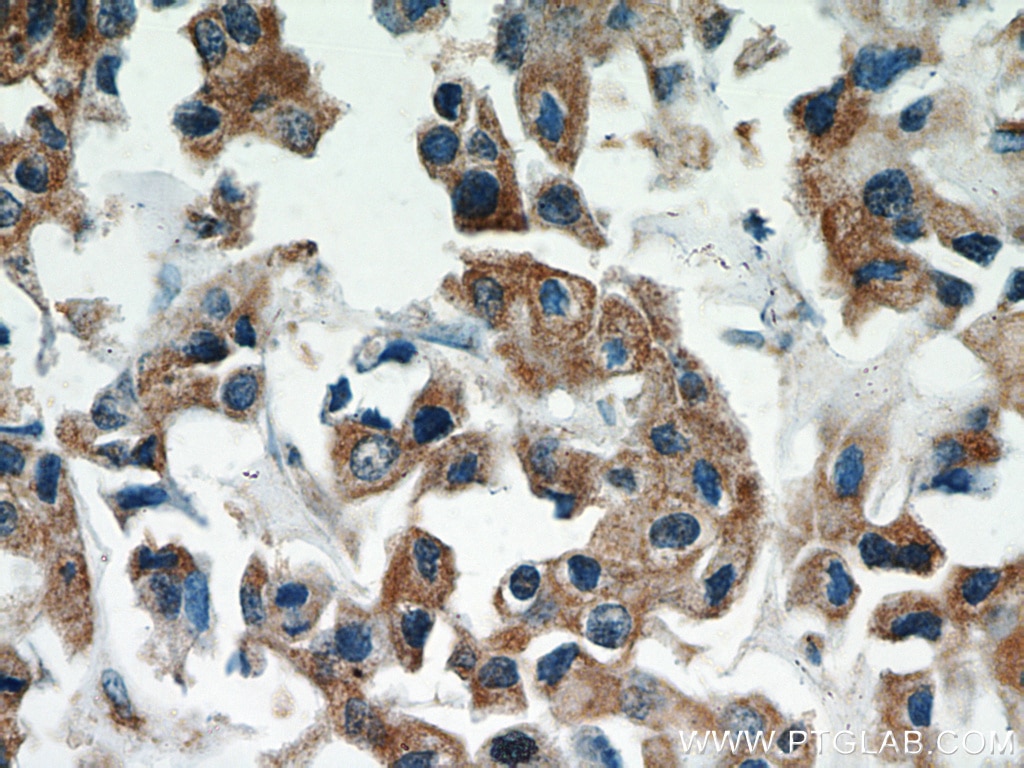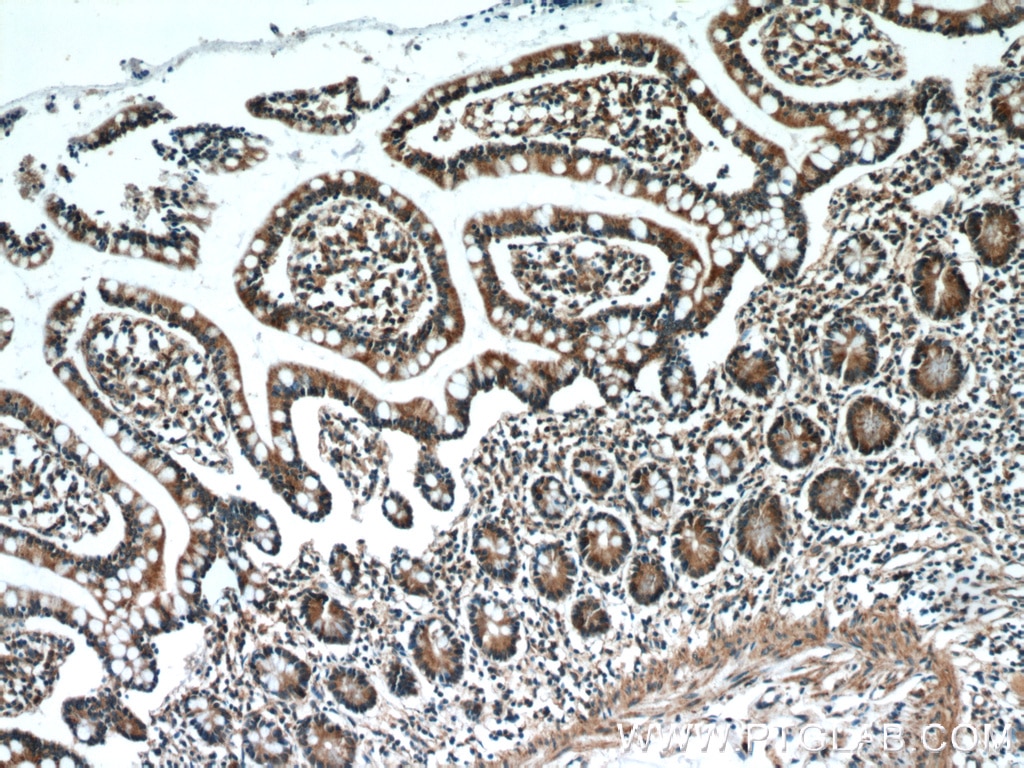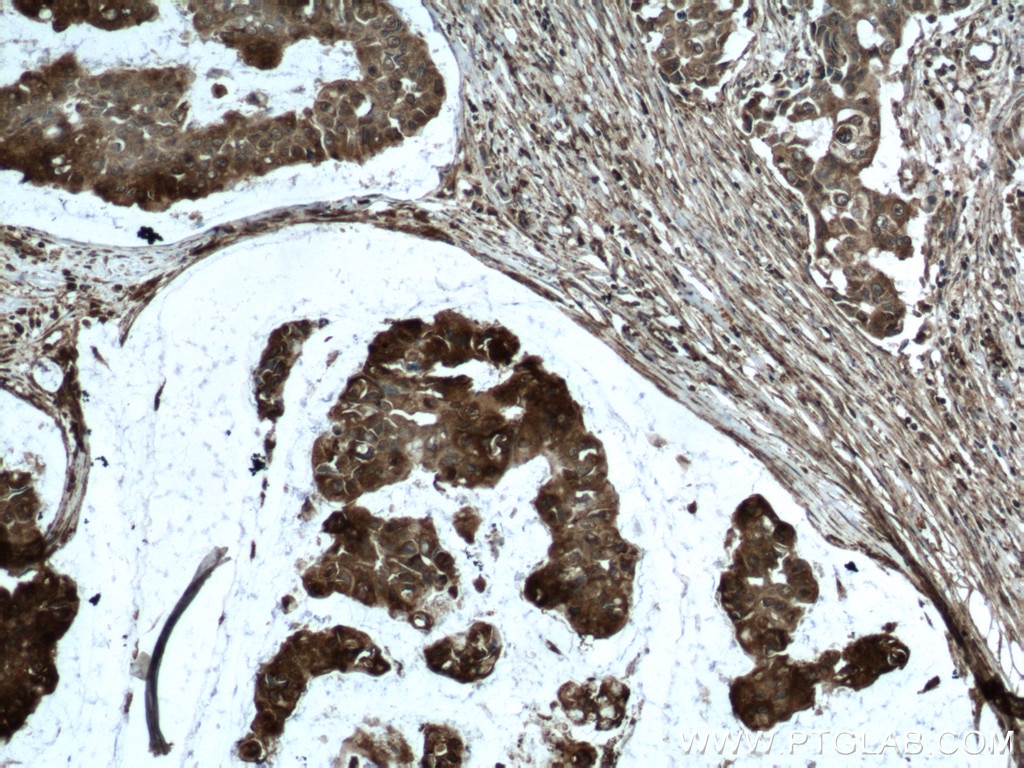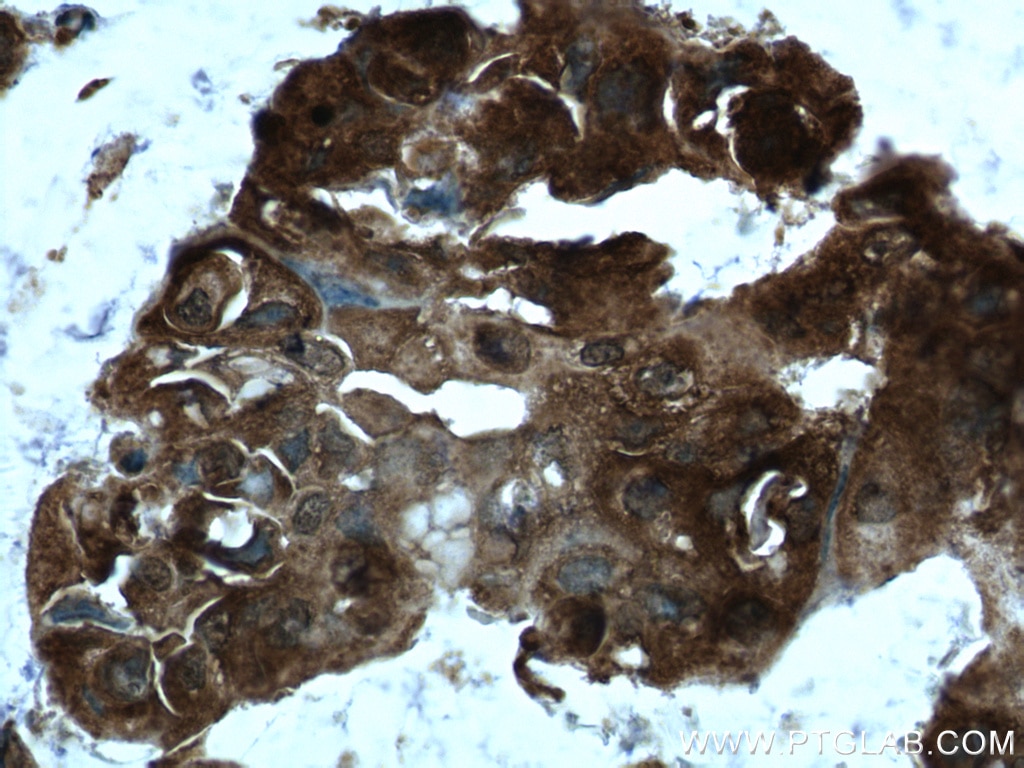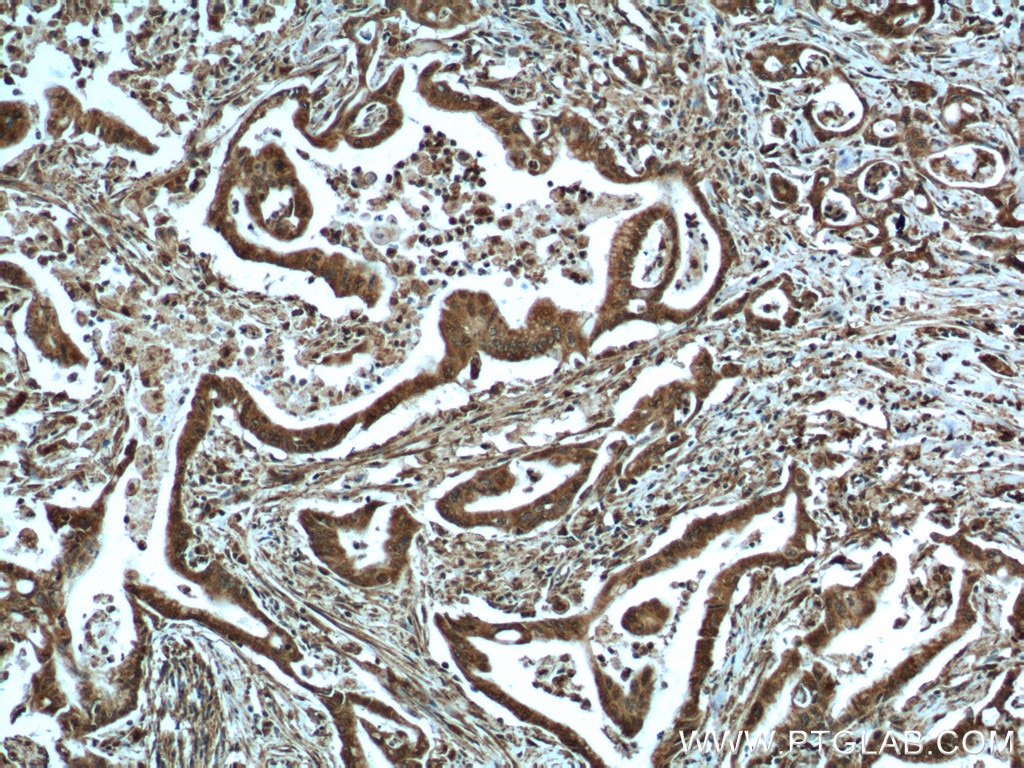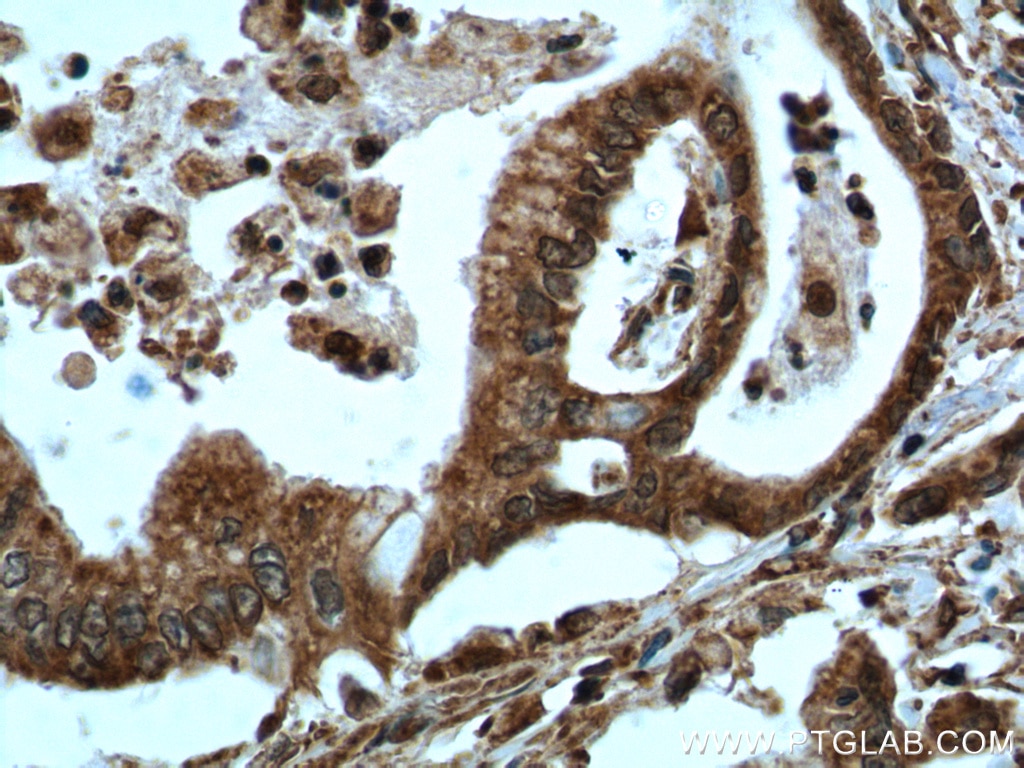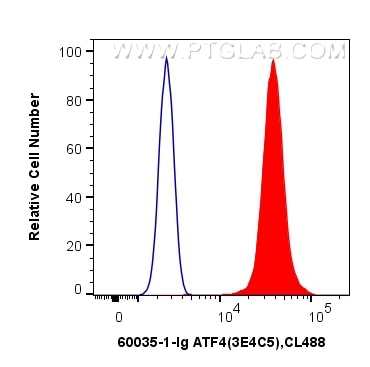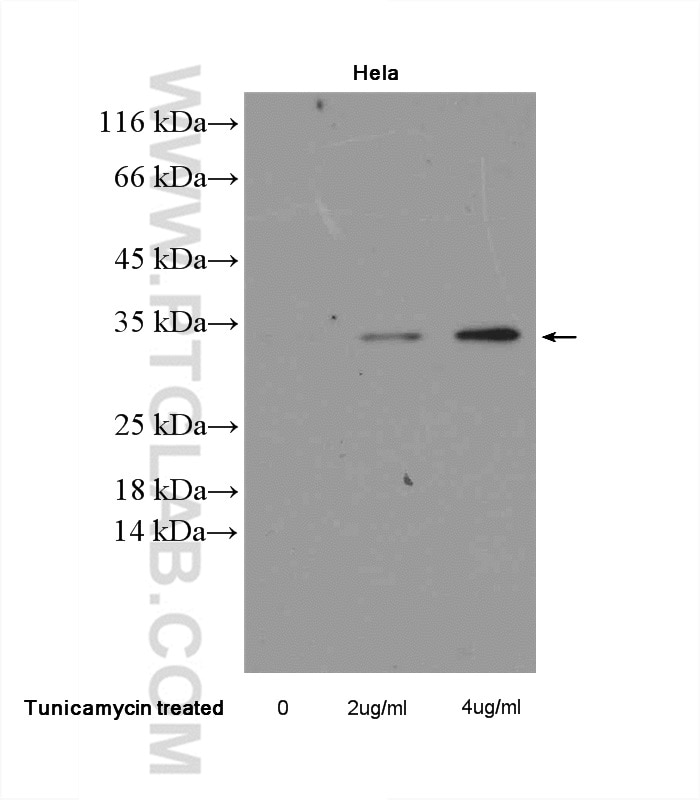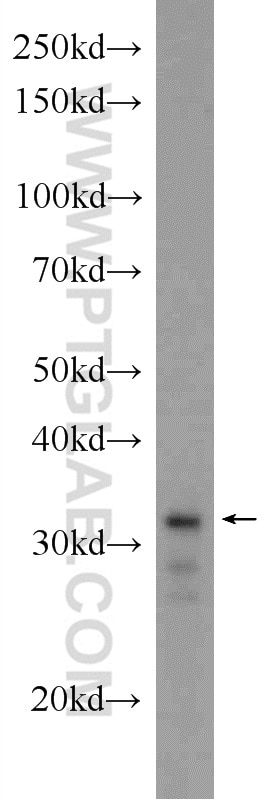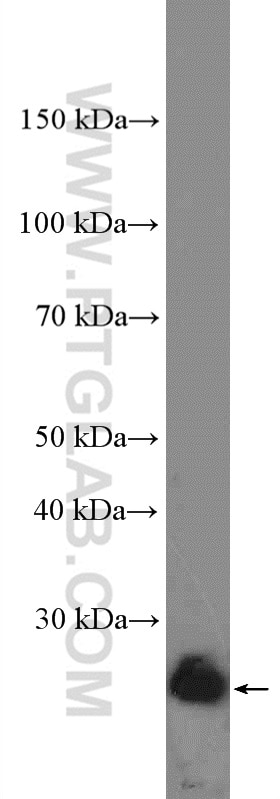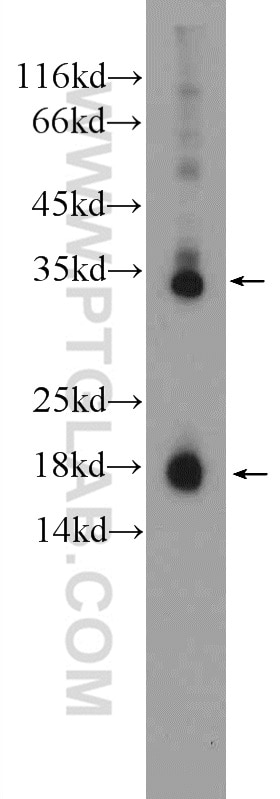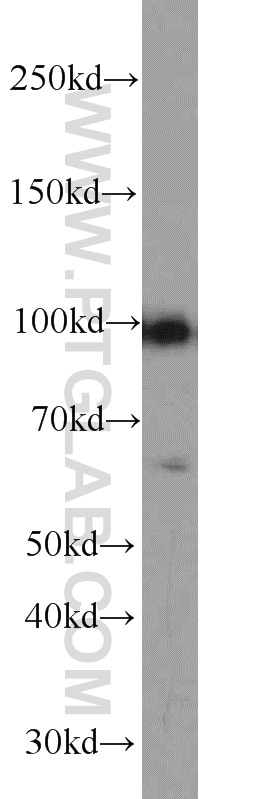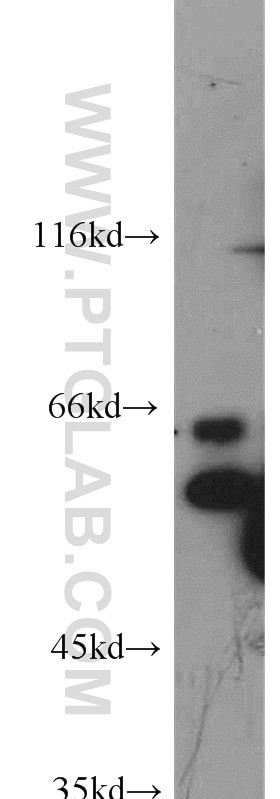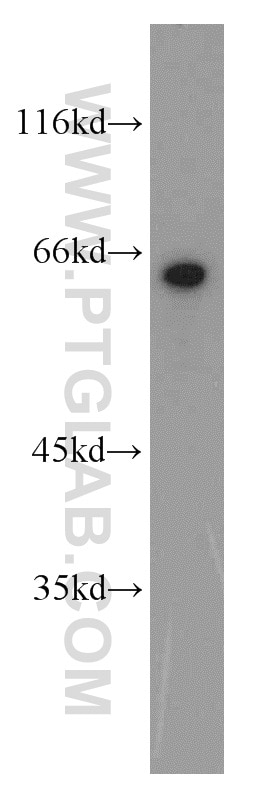ATF4 Monoklonaler Antikörper
ATF4 Monoklonal Antikörper für FC, WB, ELISA
Wirt / Isotyp
Maus / IgG1
Getestete Reaktivität
human, Maus, Ratte
Anwendung
WB, IHC, IF, FC, ChIP, ELISA
Konjugation
Unkonjugiert
CloneNo.
3E4C5
Kat-Nr. : 60035-1-Ig
Synonyme
Galerie der Validierungsdaten
Geprüfte Anwendungen
| Erfolgreiche Detektion in WB | HepG2-Zellen, HEK-293-Zellen, humanes Plazenta-Gewebe, NIH/3T3-Zellen |
| Erfolgreiche Detektion in FC | HeLa-Zellen |
Empfohlene Verdünnung
| Anwendung | Verdünnung |
|---|---|
| Western Blot (WB) | WB : 1:1000-1:4000 |
| Durchflusszytometrie (FC) | FC : 0.40 ug per 10^6 cells in a 100 µl suspension |
| It is recommended that this reagent should be titrated in each testing system to obtain optimal results. | |
| Sample-dependent, check data in validation data gallery | |
Veröffentlichte Anwendungen
| WB | See 23 publications below |
| IHC | See 4 publications below |
| IF | See 9 publications below |
| ChIP | See 2 publications below |
Produktinformation
60035-1-Ig bindet in WB, IHC, IF, FC, ChIP, ELISA ATF4 und zeigt Reaktivität mit human, Maus, Ratten
| Getestete Reaktivität | human, Maus, Ratte |
| In Publikationen genannte Reaktivität | human, Maus, Ratte |
| Wirt / Isotyp | Maus / IgG1 |
| Klonalität | Monoklonal |
| Typ | Antikörper |
| Immunogen | ATF4 fusion protein Ag1279 |
| Vollständiger Name | activating transcription factor 4 (tax-responsive enhancer element B67) |
| Berechnetes Molekulargewicht | 39 kDa |
| Beobachtetes Molekulargewicht | 45-50 kDa |
| GenBank-Zugangsnummer | BC022088 |
| Gene symbol | ATF4 |
| Gene ID (NCBI) | 468 |
| Konjugation | Unkonjugiert |
| Form | Liquid |
| Reinigungsmethode | Protein-G-Reinigung |
| Lagerungspuffer | PBS with 0.1% sodium azide and 50% glycerol pH 7.3. |
| Lagerungsbedingungen | Bei -20°C lagern. Nach dem Versand ein Jahr lang stabil Aliquotieren ist bei -20oC Lagerung nicht notwendig. 20ul Größen enthalten 0,1% BSA. |
Hintergrundinformationen
What is the molecular weight of ATF4?
The molecular weight of ATF is 38.6 kD.
What is ATF4?
Activating transcription factor 4 (ATF4), also known as cAMP-response element-binding protein 2 (CREB2), is a substrate of RSK2 and a basic leucine-zipper transcription factor (PMIDs: 16000305, 17485283).
What the function of ATF4?
ATF4 its a transcription factor that controls the transcriptional activity of mature osteoblasts. ATF4 is particularly critical for their timely onset and terminal differentiation, as well as expression of Bsp and osteocalcin. Knockout animals displayed reduction or delay in bone mineralization and have severely reduced bone volume. ATF4 is also part of the PERK-eIF2α-ATF4-CHOP apoptosis pathway, which is activated by ER stress, and it likely plays a role related to tumor cell survival (PMIDs: 18083928, 16000305, 30134550).
What is the effect of ATF4 interaction with RSK2?
ATF4 and RSK2 posttranscriptionally regulate type I collagen synthesis. Lack of RSK2 phosphorylation of AFT4 may contribute to skeletal phenotypes associated with Coffin-Lowry Syndrome (PMID: 17485283).
Where is ATF4 expressed?
ATF4 protein is predominantly expressed in osteoblasts, although its corresponding Atf4 mRNA is ubiquitously expressed (PMID: 16000305).
What regulates ATF4 expression?
ATF4 is regulated by a ubiquitin/proteasomal pathway, which is less active in osteoblasts by inhibition with MG115 (PMID: 16000305).
How does ATF4 expression affect Ocn mRNA?
Inhibition of the degradation pathway leads to ATF4 accumulation and induces Ocn mRNA expression in non-osteoblastic cells (PMID: 16000305).
Does ATF4 have the ability to induce osteoblast-specific gene expression even in non-osteoblastic cells?
Yes, ATF4, as well as other osteoblast differentiation factors, has this ability. AFT4 interactions with Runx2 can stimulate osteoblast-specific osteocalcin gene expression. (PMIDs: 16000305, 17485283)
Protokolle
| Produktspezifische Protokolle | |
|---|---|
| WB protocol for ATF4 antibody 60035-1-Ig | Protokoll herunterladen |
| IHC protocol for ATF4 antibody 60035-1-Ig | Protokoll herunterladen |
| FC protocol for ATF4 antibody 60035-1-Ig | Protokoll herunterladen |
| Standard-Protokolle | |
|---|---|
| Klicken Sie hier, um unsere Standardprotokolle anzuzeigen |
Publikationen
| Species | Application | Title |
|---|---|---|
Adv Sci (Weinh) The Critical Role of The Piezo1/β-catenin/ATF4 Axis on The Stemness of Gli1+ BMSCs During Simulated Microgravity-Induced Bone Loss | ||
J Clin Invest ATF4-dependent induction of heme oxygenase 1 prevents anoikis and promotes metastasis. | ||
Aging Cell Reducing ER stress with chaperone therapy reverses sleep fragmentation and cognitive decline in aged mice. | ||
Nat Commun Integration of Hippo signalling and the unfolded protein response to restrain liver overgrowth and tumorigenesis. | ||
Redox Biol Mecheliolide elicits ROS-mediated ERS driven immunogenic cell death in hepatocellular carcinoma. | ||
Rezensionen
The reviews below have been submitted by verified Proteintech customers who received an incentive forproviding their feedback.
FH Daniel (Verified Customer) (12-02-2019) | Multiple bands appeared which were higher than the expected ~50kDa.
 |
